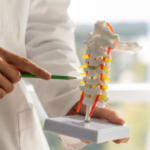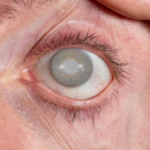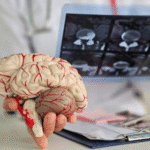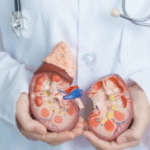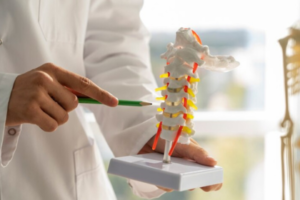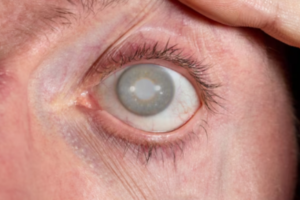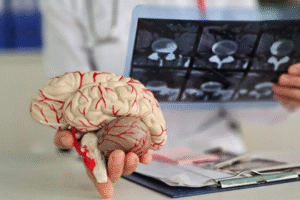
Cancer is a leading cause of death worldwide, but many types can be prevented or detected early when they are most treatable. Understanding cancer prevention and early detection guidelines can significantly reduce your risk and improve your chances of successful treatment. This article explores key strategies for cancer prevention, recommended screenings, and lifestyle changes that can help you stay healthy.
Understanding Cancer Prevention
What is Cancer Prevention?
Cancer prevention involves taking proactive steps to reduce the risk of developing cancer. This includes lifestyle modifications, vaccinations, and regular screenings to identify potential issues before they become serious.
Importance of Prevention
Preventing cancer not only improves your quality of life but also reduces the burden on healthcare systems. Early detection through screenings can lead to more effective treatment and better outcomes.
Key Strategies for Cancer Prevention
Lifestyle Modifications
Making healthy lifestyle choices is one of the most effective ways to prevent cancer.
Diet and Nutrition
- Balanced Diet: Eat a diet rich in fruits, vegetables, whole grains, and lean proteins. Limit processed foods, red meats, and sugary drinks.
- Healthy Fats: Incorporate healthy fats from sources like fish, nuts, and olive oil while avoiding trans fats and saturated fats.
- Antioxidants: Foods high in antioxidants, such as berries, nuts, and dark leafy greens, help protect cells from damage.
Physical Activity
- Regular Exercise: Aim for at least 150 minutes of moderate aerobic activity or 75 minutes of vigorous activity each week, along with muscle-strengthening exercises.
- Maintain a Healthy Weight: Regular physical activity and a balanced diet help you maintain a healthy weight, which is crucial for cancer prevention.
Avoiding Tobacco
- No Smoking: Smoking is a leading cause of various cancers, including lung, mouth, throat, and bladder cancer. Quitting smoking significantly reduces your risk.
- Avoid Secondhand Smoke: Exposure to secondhand smoke can also increase your risk of cancer. Avoid environments where smoking is common.
Limiting Alcohol Consumption
- Moderation: Limit alcohol intake to no more than one drink per day for women and two drinks per day for men. Excessive alcohol consumption increases the risk of several cancers, including breast, liver, and colorectal cancer.
Vaccinations
Certain vaccinations can protect against viruses that cause cancer.
- HPV Vaccine: The human papillomavirus (HPV) vaccine protects against cervical, anal, and other cancers caused by HPV. It is recommended for preteens but can be given to individuals up to age 26.
- Hepatitis B Vaccine: The hepatitis B vaccine reduces the risk of liver cancer by protecting against the hepatitis B virus, which can cause chronic liver infection and damage.
Regular Screenings
Screenings can detect cancer early, often before symptoms appear. The following are key screening recommendations:
Breast Cancer
- Mammograms: Women aged 50 to 74 should have a mammogram every two years. Women aged 40 to 49 should discuss the benefits and risks of screening with their healthcare provider.
Cervical Cancer
- Pap Test: Women aged 21 to 65 should have a Pap test every three years.
- HPV Test: Women aged 30 to 65 can choose to have an HPV test every five years, or a Pap test and HPV test together every five years.
Colorectal Cancer
- Colonoscopy: Adults aged 45 and older should have a colonoscopy every 10 years. Other screening options include stool tests, sigmoidoscopy, and CT colonography.
Prostate Cancer
- PSA Test: Men aged 50 and older should discuss the benefits and risks of prostate-specific antigen (PSA) testing with their healthcare provider.
Lung Cancer
- Low-Dose CT Scan: Adults aged 55 to 80 with a history of heavy smoking should have an annual low-dose CT scan.
Sun Protection
Protecting your skin from the sun reduces the risk of skin cancer.
- Sunscreen: Use a broad-spectrum sunscreen with an SPF of 30 or higher, and reapply every two hours.
- Protective Clothing: Wear hats, sunglasses, and long-sleeved clothing when outdoors.
- Avoid Tanning Beds: Tanning beds increase the risk of skin cancer, including melanoma.
Early Detection Guidelines
Importance of Early Detection
Early detection of cancer increases the chances of successful treatment and survival. Regular screenings and being aware of the symptoms can help catch cancer early.
Common Symptoms to Watch For
Being vigilant about changes in your body can help with early detection. Common symptoms of cancer include:
- Unexplained Weight Loss: Sudden, unexplained weight loss can be a sign of cancer.
- Persistent Fatigue: Constant tiredness that doesn’t improve with rest.
- Pain: Persistent pain, especially in the bones or other areas of the body.
- Skin Changes: Changes in the size, color, or shape of moles or other skin lesions.
- Unusual Bleeding: Bleeding from the rectum, vagina, or other parts of the body.
- Changes in Bowel or Bladder Habits: Persistent changes in bowel movements or urination.
Regular Health Check-Ups
Regular health check-ups with your healthcare provider are crucial for early detection. Discuss any symptoms or changes you notice, and keep up with recommended screenings.
Cancer prevention and early detection are critical components of a proactive approach to health. By making informed lifestyle choices, staying up-to-date with vaccinations and screenings, and being aware of the signs and symptoms of cancer, you can significantly reduce your risk and improve your chances of successful treatment if cancer does occur. Embracing these guidelines can lead to a healthier, cancer-free life.

